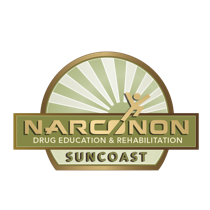Delray Beach Goes Above and Beyond to Help Addicts in Need

Delray Beach, FL has long been known as one of the “Meccas” of recovery in the 12-step community in Southeastern Florida. There are hundreds of rehabs, detoxes and halfway houses stretching all the way down to Miami and addicts from all over the country have flocked to that area with the promise of getting sober and starting their lives over again. Unfortunately, this area of the country has also been the epicenter of shady business practices, insurance fraud and patient-brokering. These allegations, alongside the growing number of halfway houses and rehab centers being shut down in the area, have left a stain on the ever-growing recovery community centers being shut down in the area, have left a stain on the ever-growing recovery community.epicenter of shady business practices, insurance fraud and patient-brokering. These allegations, alongside the growing number of halfway houses and rehab centers being shut down in the area, have left a stain on the ever-growing recovery community.
Halfway houses are sober homes where addicts live after attending a rehabilitation program. Their goal is to give a newly sober person a safe place to restart their lives while providing structure and demanding accountability. But that’s in a perfect world.
Unfortunately, halfway houses in Southeastern Florida have proved to be anything but helpful. Greedy owners have turned them into money-making “cash cows” by milking the addict’s insurance policies for everything they’ve got, paying commissions to “junkie hunters” who are sent out to track down addicts with good insurance policies and funnel them into detox centers, rehabs, outpatient clinics and halfway houses. In some extreme cases, these sober homes have been the venues for drug dealing, drug use, and prostitution.
The city of Delray Beach has decided to do something about the growing number of displaced addicts who are homeless and roaming city streets. Unethical halfway houses in that area are being shut down. Two were shut down just this month, causing nearly 24 recovering addicts to be rendered homeless with only a day or twos notice. When these sober homes get shut down, the addicts who resided there hit the streets and often start using again and commit crimes in the community.
Instead of just allowing this to happen, the Delray Beach municipal police department has hired a full-time advocate for those battling addiction. Ariana Ciancio is the department’s newest hire and her job is to exclusively help addicts in need find resources to get help. Anytime a police officer responds to an overdose and administers Narcan, Ciancio is immediately notified and reaches out to them with various resources, such as getting them a bed at a detox. Ciancio said, “by giving them a pamphlet, or my card, or my phone number and telling them the Delray Beach Police Department is here for them, I try to plant the seed.”
Chief Jeff Goldman has helped head this effort to assist addicts in his community. Goldman said, “anybody that comes into the front lobby and says they need help with addiction, we are going to help them. It’s really about compassion and empathy for our community. How many times can our officers watch the same individual overdose? How many times can they watch someone die?”
Ciancio has also developed the C.A.R.E.S. program, which stands for the Community Advocacy Response Education Service, which has police deputies reach out to her when they come across an addict in need. Further, Ciancio hits the streets of Delray Beach and goes to areas frequented by homeless addicts, attempting to get them the help they need.
This is one step closer to an appropriate solution to drug addiction for everyone. Instead of merely locking up the addicts in the area for possession charges and petty crimes, the community of Delray Beach is trying to help them, rather than just punishing them. If more communities nationwide followed Delray’s lead, we might start to see a drop-in addiction.
